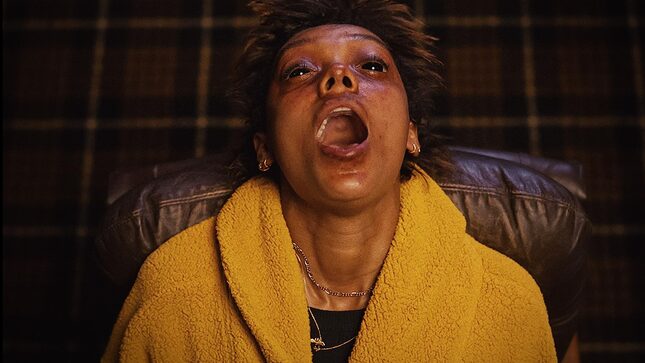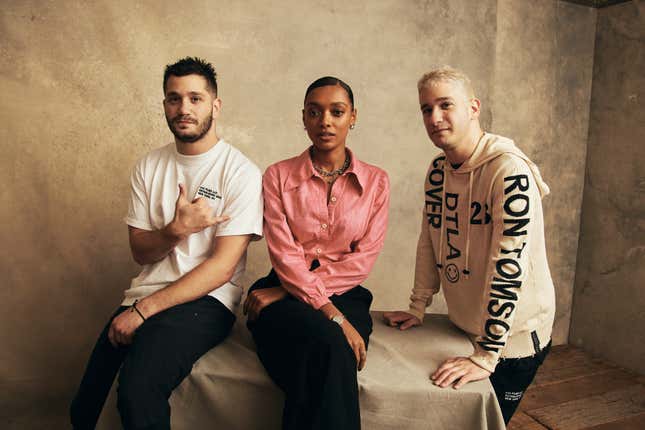‘Talk To Me’ Shows the Demonic Lengths Teens Will Go to in Order to Go Viral
A24's new horror movie captures "those peer-pressure environments where kids will make each other do drugs," the twin directors told Jezebel.
EntertainmentMovies

Children shouldn’t play with dead things, or so claimed the title of a ‘70s horror movie, but kids tend to have little regard for what they “should” do. And so, in Talk to Me (out Friday), the debut feature from 30-year-old Australian twin directors Danny and Michael Philippou, teens play with spirits in a viral party game. An enchanted hand allows them to experience temporary demonic possession—it’s like a DMT trip compared to The Exorcist’s ayahuasca. As long as they let the demons in for less than 90 seconds, the kids (led by Sophie Wilde as Mia) are all right. I’ll let you guess how it pans out.
That this group of Aussie kids film their temporary possessions and share them online is an unsurprising plot turn from the Philippous, who know a thing or two about going viral via their popular RackaRacka YouTube channel. In a recent Zoom interview with Jezebel, they frequently finished each other’s sentences and otherwise burst with energy as they discussed their film, “elevated horror,” and the car accident Danny was in as a teen that was a major inspiration for Talk to Me—alongside other inspirations The Vanishing, Let the Right One In, The Exorcist, and Bong Joon-ho’s Memories of Murder. An edited and condensed transcript of our chat is below.
JEZEBEL: Your movie opens with a shock. Was that intended to immediately rope people in?
Danny: The idea was always to have an opening that just pulled the audience into the world of the story we were telling. We wanted to start outside of this horror and then pull them in. And we always knew that we want to have this one at the start and bookend it with one towards the end.
Michael: There’s even things happening through the frame of that first one. We wanted to reveal something new around every corner. It was the first shot of the film, but as the last shot of the shoot.
Danny: We had to build up to it. It was too intimidating.
Was making this movie cathartic at all? Were you able to process your own feelings about death by making such a dark movie?
Danny: All of the scenes and themes that we’re talking about, from the mental illness, from these close calls with death, and losing a loved one—all of this is drawn from real life experiences. I could break down so many different horror elements that are based on real things, like even down to the swelling on Riley’s face. I remember my face swelling up that exact same way when I was in a car accident [at age 16] and I destroyed my face. I fractured my spine, and I was in hospital. They cut my clothes off, and they were trying to see if I was okay. I couldn’t stop shaking after the accident. The doctors would come, turn the heaters on, bring extra blankets and jumpers, trying to warm me up because I just couldn’t stop shaking. And then my sister came in to visit me and she sat next to me and she held my hand. And the shaking just stopped. And it was like, yeah, I wasn’t shaking because I was cold. I was shaking because I was in shock. And the touch of someone that I love pulled me out of it. And that was already a really powerful moment to me.
I remember that always, knowing that if you’re ever in a vulnerable position like that, whether physically from the car accident or mentally and emotionally, you need someone and a connection to help pull you out. Human touch, connection was such a big thematic thing throughout all the drafts.
-

-

-

-

-

-

-

-

-

-

-

-

-

-

-

-

-

-

-

-

-

-

-

-

-

-

-

-

-

-

-

-

-

-

-

-

-

-

-

-









































